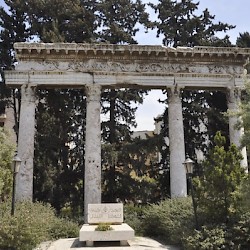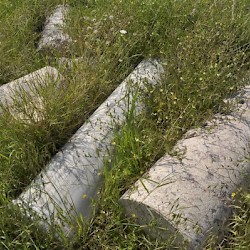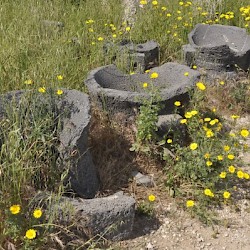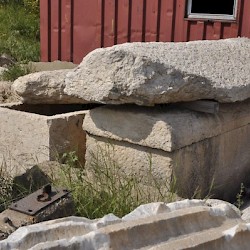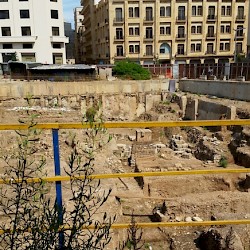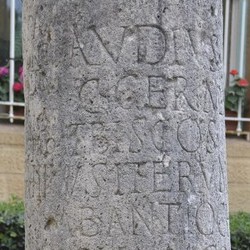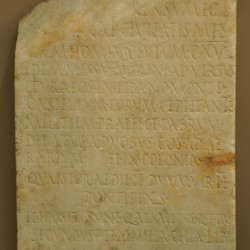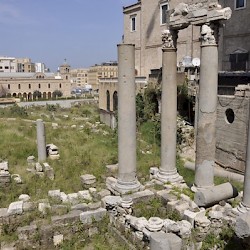Berytus (2)
Q3820Berytus (Βηρυτóς): town in Phoenicia, modern Beirut.
Roman Berytus

Traders from Berytus are known from Delos, and it is certain that the town allied itself to Rome. Pompey the Great used it as a naval base in his war against the Cilician pirates.
The alliance would pay off: Berytus would become the first colonia in the Near East, which means that all citizens had the Roman citizenship. The official name was Colonia Julia Augusta Felix Berytus. Among the settlers were veterans from the Fifth Legion Alaudae, who were given land in Berytus by Mark Antony; during the reign of the emperor Augustus, former soldiers of V Macedonica and VIII Augusta were settled in Berytus.

An interesting inscription refers to the last-named unit under its oldest name, VIII Gallica. Another interesting inscription is the tombstone of Quintus Aemilius Secundus, which mentions the census of Quirinius that is well-known from the Nativity story.

The city's importance can be deduced from the size of its territory: it included a substantial part of the Phoenician coastal area, a road across the Lebanon Mountains, the sanctuaries of Faqra and Nihata, and parts of the Bekaa valley up to Baalbek.
The city must have been splendid. To the west of the city was a hippodrome, while archaeologists have identified the Roman baths, an aqueduct, and a colonnaded street (sometimes called cardo). Halls, porticoes, temples, and market-places were sponsored by the Judaean king Herod the Great, and his descendant Herod Agrippa I continued the family tradition by organizing a gladiatorial spectacle in which 1,400 men were killed.
The city really wanted to show it Roman nature: for a city that had been part of the Greek world since the age of Alexander, there are surprisingly many Latin inscriptions.

After the death of the emperor Commodus (r.180-192), the Roman Empire fell victim to a civil war, in which the main cities in the Near East (Antioch and Berytus for example) supported Pescennius Niger.note However, he lost the civil war, and Berytus was passed over when the new emperor, Septimius Severus (r.193-211), reorganized Syria and created a new province. The capital of Phoenicia was to be Tyre.
Nevertheless, Berytus remained an important city, visited by the emperor Caracalla (who left an inscription at the Nahr al-Kalb). Since the third century, the city had an important law college. It was here that the great codification of Roman Law, which was to be propagated by emperors like Theodosius II and Justinian, was prepared. The city was called nutrix legum, the "mother of the laws".
Late Antiquity

The city was important for Christianity too. At the end of the fourth century, it was one of the main episcopal seats in the east. Several archaeological finds illustrate this, and show that not everyone was as orthodox as the bishop would have liked them to be. There's a curious magical text in which many celestial beings are invoked to protect one Alexandra: they include "the One God and His Christ", but also seven beings who are the lords of the seven heavens (Marmarioth, Uriel, Ael, Gabriel, Chael, Moriath, Chachth), the beings responsible for the weather (Riopha, Zonchar, Tebriel, Tobriel), the protectors of the sea and mountains (Suriel and Nuchael), the celestial dragon keeper Iathennuian, and a protector of the firmament named Chrara.
 Beirut, Byzantine church floor |
 Beirut, Medal of St. Catharine |
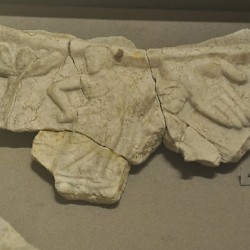 Beirut, marble fragment with the Aqedah (the sacrifice of Abraham) |
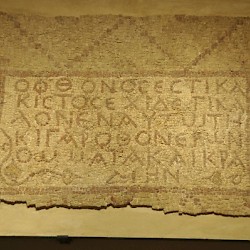 Beirut, Envy Mosaic |

In 551, a mighty earthquake destroyed large parts of the city. Reportedly, thirty thousand people perished. Although the emperor Justinian ordered repairs, the city declined. New life was given to the city when the Umayyad Caliphs settled Iranians in Berytus, who were responsible for the trade between the new capital Damascus and Egypt.
Sights
The tell of Beirut, north of Martyrs' Square, is accessible, but it looks like a rubbish dump and there are no explanatory signs, which make it very complex to understand. West of the Place de l'Étoile are the Roman baths, while the so-called cardo is to the south. All in all, it is a bit disappointing, but in Beirut, you can also visit two of the most beautiful museums of the Middle East:
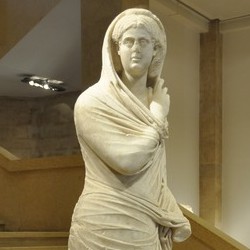 Beirut, Statue of a Roman lady |
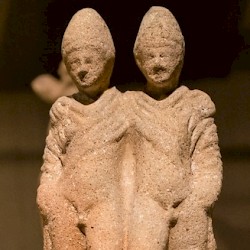 Beirut, Figurine of the Dioscuri |
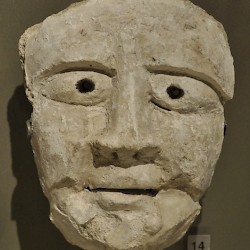 Beirut, Theater mask |
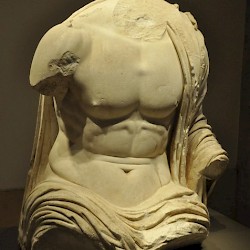 Beirut, Torso of a colossus |
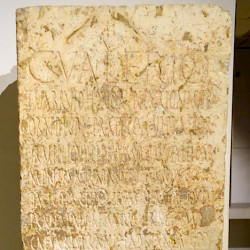 Beirut, Tombstone of Valerius Rufus of VII Claudia |
